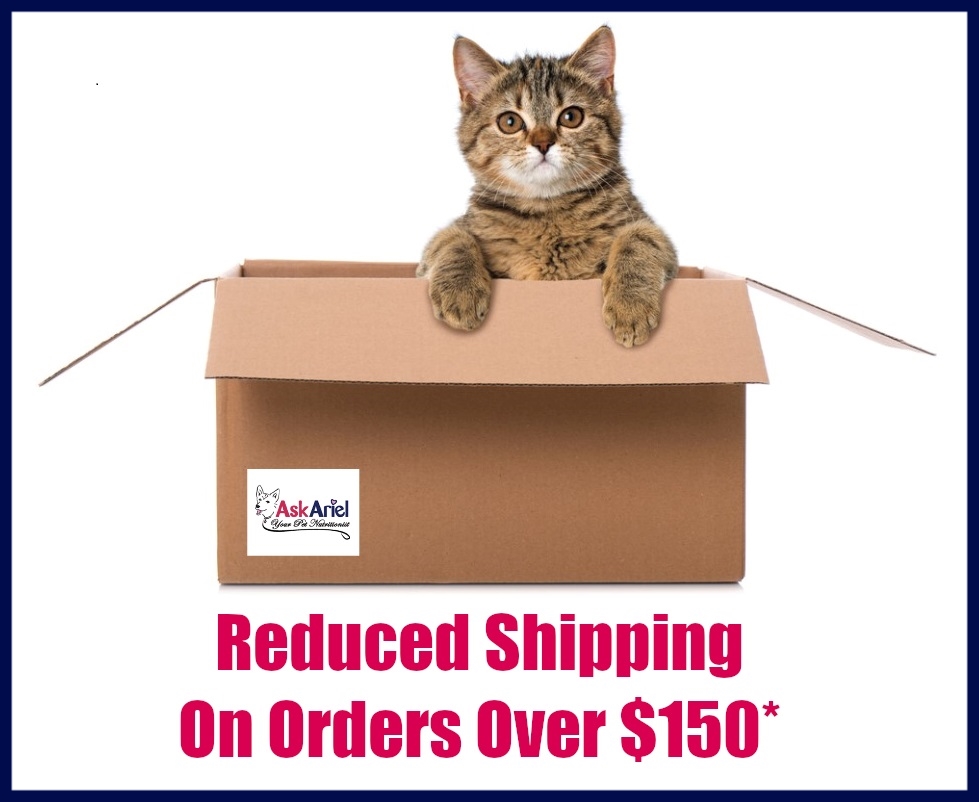Updated 4/1/24
Does your pet have itchy and inflamed skin, recurrent infections
or digestive issues such as: vomiting, diarrhea and loose stools?
All can be signs of a food
allergy from a repeat exposure to an allergen which causes the
immune system to overreact. Often the offender is the protein source in the
allergic food and your pet's immune system needs a break. Changing
your pet's diet to a low carbohydrate canned or raw frozen novel protein food
can be very helpful. (Dry
food is high in carbohydrates
and can still be problematic.)
So, what is a novel protein? It is simply a protein your pet
has never consumed before. The most common food allergens in cats are
fish, poultry and grains--ingredients commonly found in most pet
foods. While some "hypoallergenic" pet foods may simply
replace chicken with turkey or duck, what we have discovered (after years of
treating pets with food allergies) is that it's best to switch food families in
their entirety. This is because the allergic reaction can include
all protein sources within a particular family as they may be very similar in
their molecular structure. For example, many people believe that goat milk
is fine for their pet even though their pet is allergic to cow milk. The
reality is that the two forms of milk are very close in structure just as
chickens are very similar to ducks and it's best to play it safe and try a
completely different food family. When it comes to food
allergies, when in doubt, avoid the food temporarily and then at a
later time, you can try to reintroduce and see how your pet
responds.
Two novel protein sources to consider that have worked well
for many allergic pets are rabbit and venison. Some pets that have
allergies to beef and lamb may not fare as well with venison, so for severely
allergic pets, rabbit may work best. (Allergy testing is also available
through your veterinarian which can help determine if your pet might be able to
tolerate either of these.)
Benefits of Rabbit
- A
lean all-white meat protein that offers great nutrition.
- Higher
in protein than chicken, turkey, beef, duck and lamb and contains essential
amino acids that help build lean muscles and boost immune system.
- Low
in saturated fats, but contains healthy fats which help provide a shiny
coat and healthy joints
- Contains
Vitamin B12 which supports a healthy nervous system.
Benefits of Venison
- Lower
in fat than most other meat protein sources (such as beef and pork)
and usually highly digestible
- Good
source of B vitamins, zinc, phosphorous and iron.
- Can
be used in homemade low-fat diets as it is more available in grocery
stores.
Rabbit and venison can be found in all food forms, but for
allergies, we recommend raw frozen and canned. Several brands such as
Instinct and Stella and Chewys have a freeze-dried version with the exact same
ingredients as the raw frozen. These work well crumbled into treats or as
an initial introduction as you transition your pet's diet.
There are also a few brands of rabbit and venison
treats. Remember though, a lot of dry foods and treats may contain
venison or rabbit, but they are still loaded with starchy carbohydrates which
won't give your pet the same great results as using a low carbohydrate raw
frozen diet.
For more tips on feeding your pet a healthy diet click here.
Author Susan Davis
Original post 3/2/17
Updated 4/1/24









